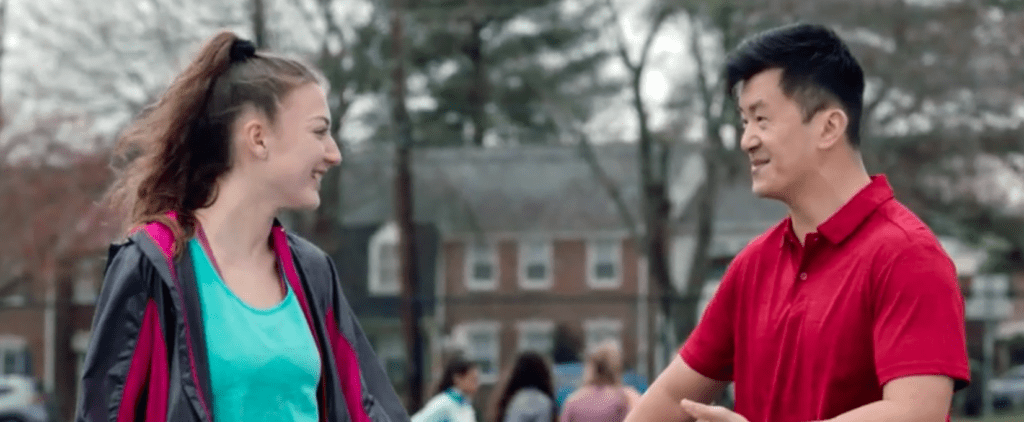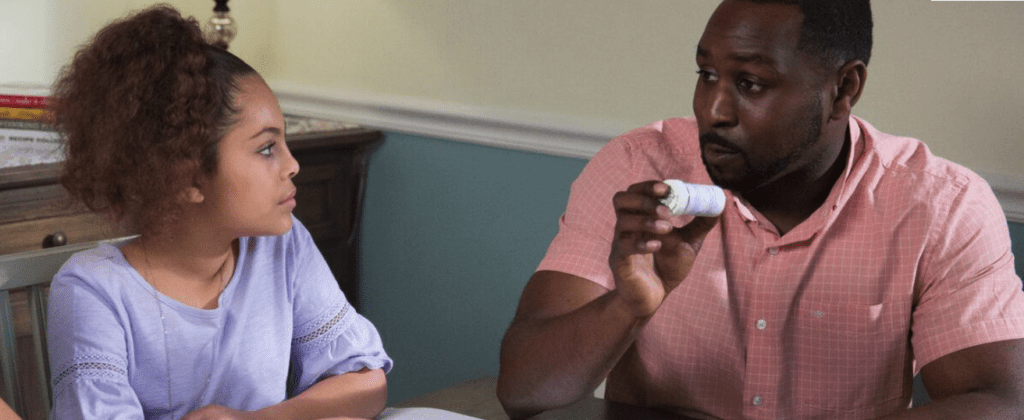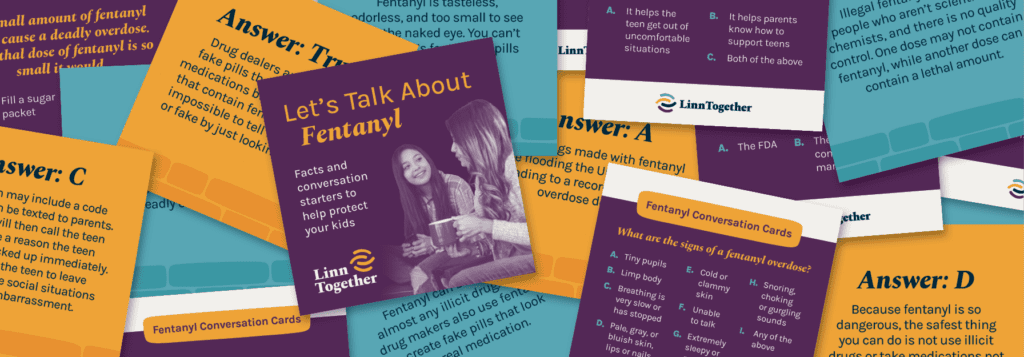Talking to Kids
-

“Talk. They Hear You”® Video
Make the choice to talk to kids. Keeping kids safe from underage use of alcohol and other drugs is a concern for parents. Take a look at the outcomes of effective communication with your child in this public service announcement from SAMHSA’s “Talk. They Hear You.”® parent-focused national media campaign. For more information about talking
-

How to Talk to Your Kids About Drugs if You Did Drugs
Ideas for discussions that will help your kids avoid drug use. Source: Partnership to End Addiction
-

5 Conversation Goals: Talking with Teens About Alcohol and Other Drugs
Though it may not seem like it, teens really do hear your concerns. It’s important you show that you care and continue having conversations with them about the dangers of alcohol and other drugs, and why they shouldn’t use them. Source: Substance Abuse and Mental Health Services Administration (SAMHSA)
-

Answering Your Child’s Tough Questions about Alcohol and Other Drugs
As your teen learns and has questions about alcohol and other drugs, they may turn to you for answers and advice. Use this opportunity to start open, honest conversations about underage drinking and drug use and to establish or reinforce your expectations about not using alcohol or other drugs. Source: Substance Abuse and Mental Health
-

11 Tips for Communicating With Your Teen
How to approach conversations with empathy and understanding. Establishing a connection with your teen is the basis for effectively supporting their mental well-being and social and emotional learning. When we love someone, we are interested in them and in their thoughts and feelings. As your child grows, communication is one way of showing your love
-

10 Questions Teens Ask About Drugs and Health
Start a conversation with your teen about drugs and health with these 10 most frequently asked questions from young people. Why do people use drugs when they know they might cause problems? Can marijuana be used as medicine? How can I help someone with a problem stop taking drugs? Get answers, start a conversation, and
-

Age-Appropriate Conversations About Alcohol and Other Drugs
Although it may not always seem like it, kids really do listen to their parents’ and caregivers’ concerns, which is why it’s important to talk with them about the risks and dangers of underage drinking and other drug use. Source: Substance Abuse and Mental Health Services Administration (SAMHSA)
-

Fentanyl Conversation Starters
Facts and conversation starters to help protect your kids. In Spanish and English. Fueled by fentanyl, the number of overdose deaths in Oregon has soared since 2019. Many fake pills are made to look just like prescription medications. These fake pills are increasingly common, and fentanyl, an opioid up to 50 times stronger than heroin,
-

Talking to Your Kids About Prescription Drug Abuse
As a parent of a teenager, you may have spoken to your child about illegal drugs and their harmful effects. But did you know that legally prescribed medicines are also a cause of concern? Source: Substance Abuse and Mental Health Services Administration (SAMHSA)